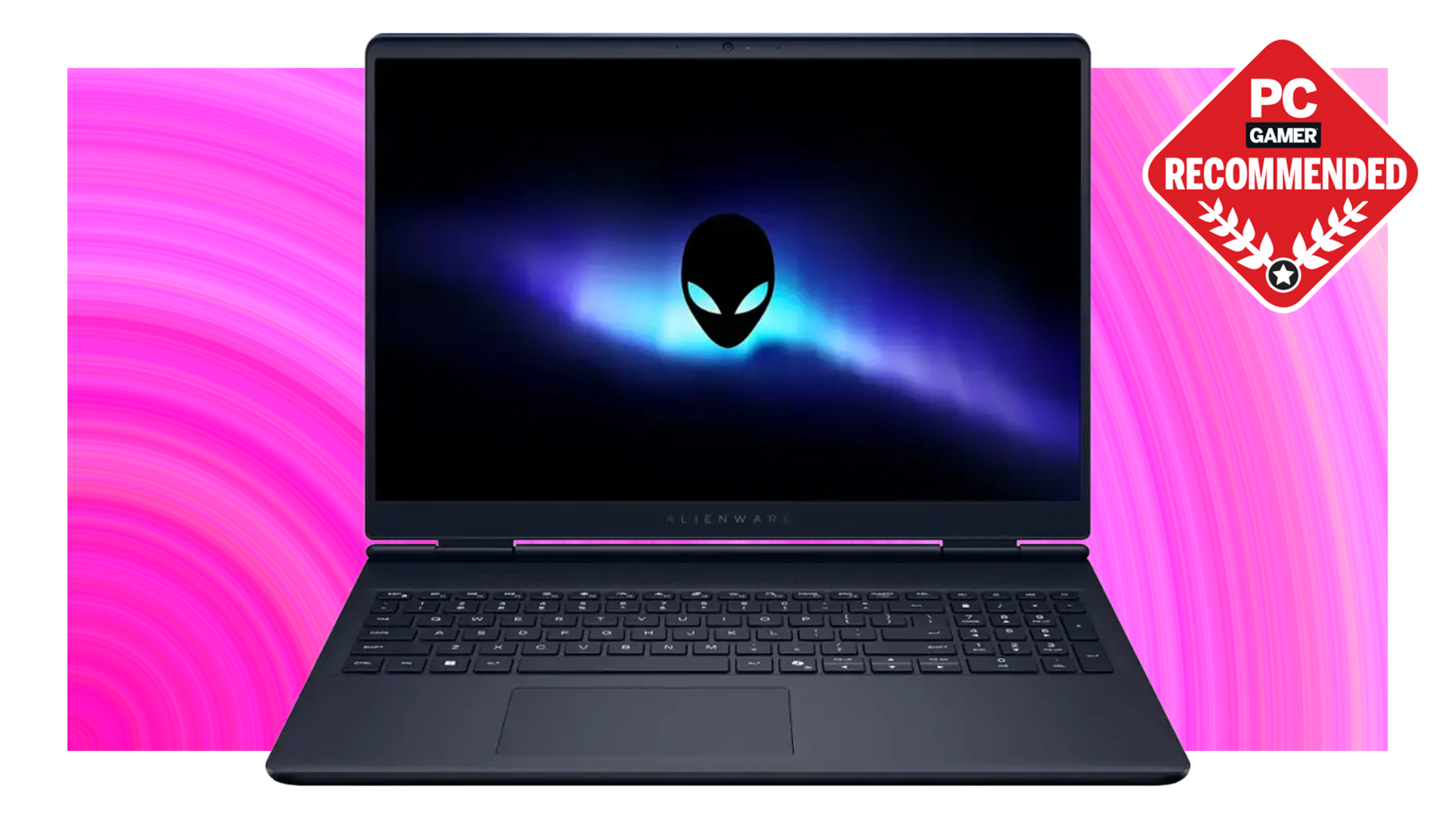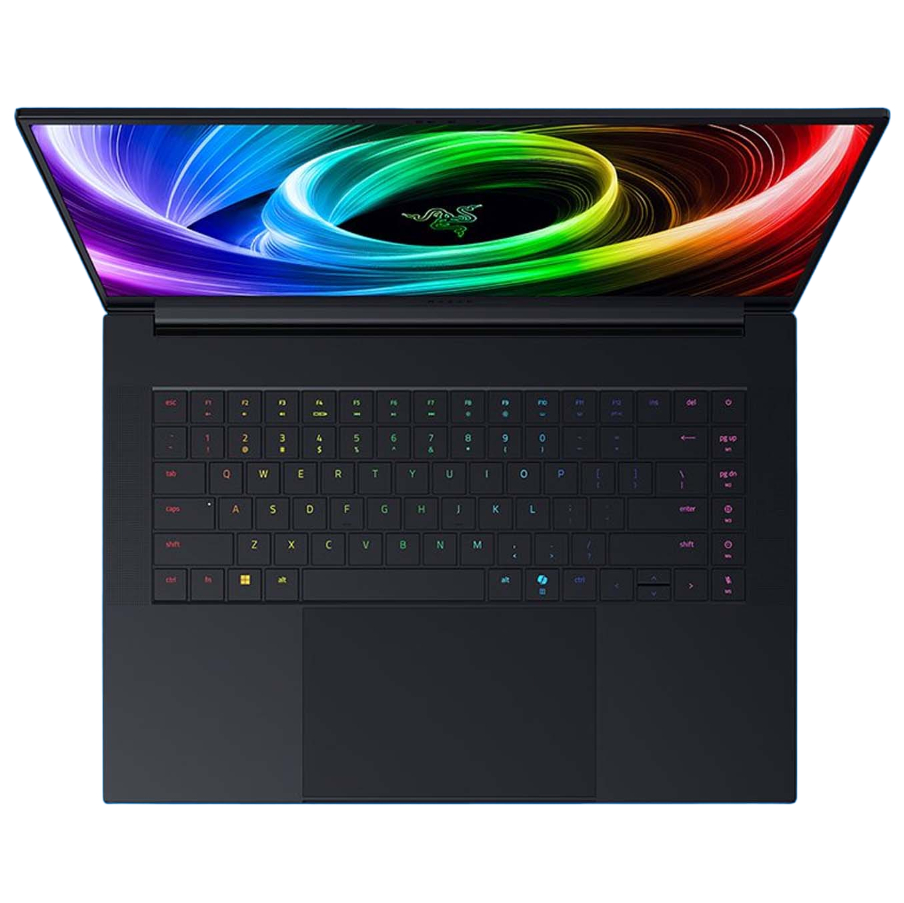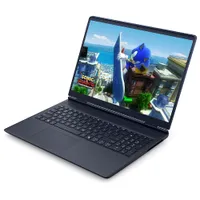Seriously, the cheapest RTX 5060 gaming laptop we've found this Prime Day is an Alienware?! How times have changed
It's not a total powerhouse, but it's still a good deal.

Keep up to date with the most important stories and the best deals, as picked by the PC Gamer team.
You are now subscribed
Your newsletter sign-up was successful
Want to add more newsletters?

Every Friday
GamesRadar+
Your weekly update on everything you could ever want to know about the games you already love, games we know you're going to love in the near future, and tales from the communities that surround them.

Every Thursday
GTA 6 O'clock
Our special GTA 6 newsletter, with breaking news, insider info, and rumor analysis from the award-winning GTA 6 O'clock experts.

Every Friday
Knowledge
From the creators of Edge: A weekly videogame industry newsletter with analysis from expert writers, guidance from professionals, and insight into what's on the horizon.

Every Thursday
The Setup
Hardware nerds unite, sign up to our free tech newsletter for a weekly digest of the hottest new tech, the latest gadgets on the test bench, and much more.

Every Wednesday
Switch 2 Spotlight
Sign up to our new Switch 2 newsletter, where we bring you the latest talking points on Nintendo's new console each week, bring you up to date on the news, and recommend what games to play.

Every Saturday
The Watchlist
Subscribe for a weekly digest of the movie and TV news that matters, direct to your inbox. From first-look trailers, interviews, reviews and explainers, we've got you covered.

Once a month
SFX
Get sneak previews, exclusive competitions and details of special events each month!
Alienware Aurora 16 | RTX 5060 | Core Ultra 7 240H | 16-inch | 1600p | 120 Hz | 32 GB DDR5 | 1 TB SSD | $1,499 $1,099.99 at Best Buy (save $400)
Who would have thought we'd be seeing Alienware laptops leading the charge for reasonably-priced RTX 50-series machines? Not me, that's who. Still, this Aurora 16 has a handsome specs sheet for the cash, including a 10-core Intel CPU (six Performance, four Efficient), 32 GB of DDR5 RAM, and a properly-sized 1 TB SSD. And of course, you'll be getting a DLSS 4-ready and Multi Frame Generation-supported GPU, although it's the current tiddler of the range. It's the 85 W version, which is a little power-limited and perhaps not the best match for that 1600p screen. Still, cheaper than you thought, ey?
Price check: Dell $1,149 (configurable)
I must be getting old. Alienware, to my mind at least, are known for two things. One, making some excellent gaming gear, and two, often pricing said gaming gear so high that it's difficult to recommend in the face of cheaper alternatives. But knock me down with a feather, because the cheapest RTX 50-series gaming laptop we can find this Prime Day is this Alienware RTX 5060 machine for $1,100, and it's causing a bit of a stir.
👉Shop all the Prime Day deals on Amazon👈
Let's have a closer look at the specs, then, and see if we can figure out why this particular Alienware lappy is so reasonably priced. Well, for a start, it's got the 85 W version of the RTX 5060, which is going to be down on power compared to some of its more high-wattage competition.
And it's also got a 1600p display. Now, while that might sound grand on paper, it's worth mentioning that the mobile RTX 5060 (particularly a low-wattage variant) is likely to struggle to push lots of pixels at such a resolution in demanding games, at least at native.
That being said, we now live in a world of DLSS 4 upscaling and Multi Frame Generation, two things all RTX 50-series GPUs support that can boost frame rates massively. We've seen a lot of interest around this particular lappy on our best Amazon Prime Day gaming laptop deals page, so is this a sign that MFG's AI-boosted frame rates are beginning to sway buyers into considering more budget machines?
Certainly, it's going to be required to get the most out of this laptop. Not that that's a bad thing. For what it's worth, I don't buy into the "fake frames, boo" narrative that seems to be pervasive in certain parts of the community at the moment. DLSS and AI frame generation work well, for the most part, although latency does become an issue when you're this far down the stack. It's something to be aware of with RTX 5060 machines, at least.
Or, is it the idea of owning an Alienware machine for budget prices that's captivating interest? Or perhaps it's as simple as gaming laptops are expensive in general at the moment, and times are economically hard, and gamers are simply looking to buy the cheapest decent gaming laptop they can get their hands on, whatever the brand?
Regardless, I have nothing against this particular machine. It's a good deal, no doubt, and the rest of the specs sheet looks excellent. You get a 10-core, 16-thread Intel CPU, 32 GB of RAM (a blessed relief, as most budget gaming laptops make do with 16 GB) and a 1 TB SSD. All as it should be.
But I keep staring at that xeno logo, and marvelling at how the times have changed. Alienware might not be associated with budget gaming hardware just yet, but a few more deals like this on reasonably-specced machines, and who knows? Stranger things have happened in this topsy-turvy world, after all.
👉You can find all of Best Buy's gaming laptop deals right here👈

👉Check out our list of guides👈
1. Best gaming laptop: Razer Blade 16
2. Best gaming PC: HP Omen 35L
3. Best handheld gaming PC: Lenovo Legion Go S SteamOS ed.
4. Best mini PC: Minisforum AtomMan G7 PT
5. Best VR headset: Meta Quest 3
Keep up to date with the most important stories and the best deals, as picked by the PC Gamer team.

Andy built his first gaming PC at the tender age of 12, when IDE cables were a thing and high resolution wasn't—and he hasn't stopped since. Now working as a hardware writer for PC Gamer, Andy spends his time jumping around the world attending product launches and trade shows, all the while reviewing every bit of PC gaming hardware he can get his hands on. You name it, if it's interesting hardware he'll write words about it, with opinions and everything.
You must confirm your public display name before commenting
Please logout and then login again, you will then be prompted to enter your display name.



